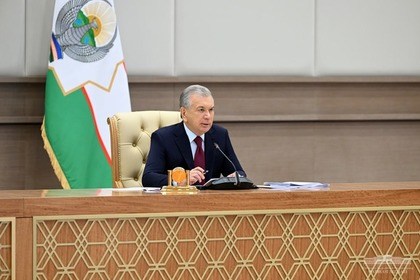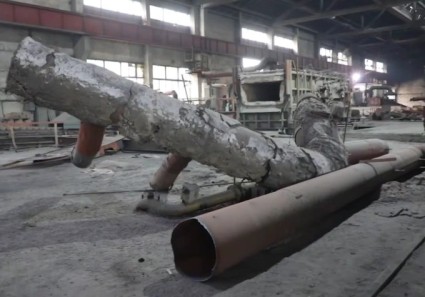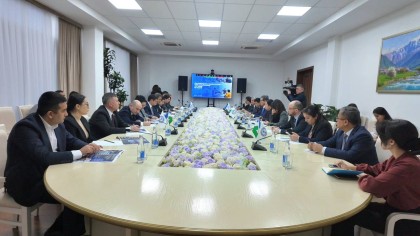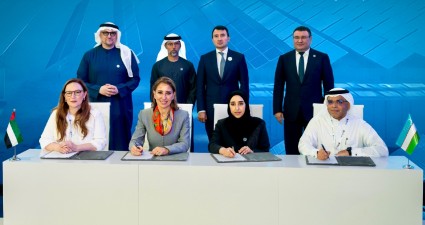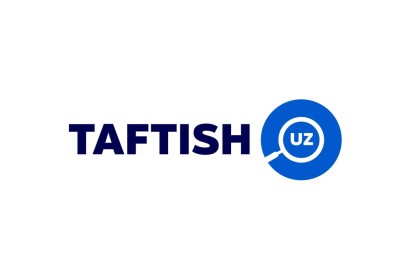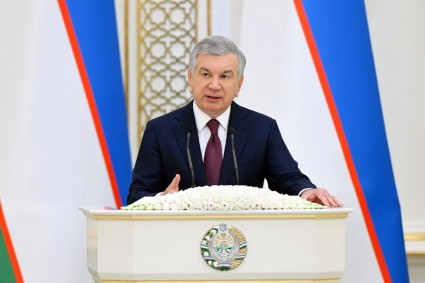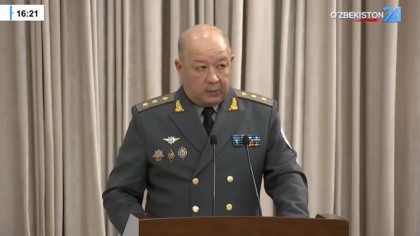Poverty reduction in Uzbekistan will become a nationwide campaign, president Shavkat Mirziyoyev said at the government meeting on poverty reduction in mahallas (neighbourhoods) and raising outreach to to low-income families to a new level on Wednesday, the president’s spokesman Sherzod Asadov said.
The president unveiled a program: From Poverty to Prosperity designed for the coming years and "based on seven opportunities and the principle of liability."
Shavkat Mirziyoyev emphasized that the reasons for falling into poverty are diverse, so the approaches should differ from each other.
At the meeting, he noted that four years ago, when the country began a large-scale fight against poverty, 23% of the population, or 7.5 million people, lived below the poverty line.
Over the past time, the population has grown by 3.7 million, and the poverty level has increased by 1.5 times. Despite this, by providing income to 3.5 million people by the end of 2023, the poverty level was reduced to 11%.
Social security coverage was expanded 4.5 times - from 466 thousand to 2.2 million people. Last year, 12.3 trillion soums were provided for these purposes. The size of pensions and benefits was increased by 1.5 times, the president noted.
35 trillion soums of soft loans and 7 trillion soums of subsidies were provided for the purpose of reducing poverty in mahallas and entrepreneurship projects.
120 trillion soums were provided for the improvement of mahallas, kindergartens, schools, medicine, roads, water and electrical infrastructure.
In addition, 260 thousand hectares of land were provided to 800 thousand individuals, primarily young people, for agriculture as an income-generating asset.
The president emphasized that the efforts aimed at combatting poverty is not being carried out equally in all provinces and districts.
In the first half of this year, poverty decreased by more than 2% in Andijan, Bukhara, Jizzakh, Kashkadarya and Khorezm provinces, but there were no changes in Navoi, Surkhandarya, Fergana provinces and Tashkent, Shavkat Mirziyoyev said.
In 15 districts of the country, the poverty level exceeds 20%. These are Amu Darya, Beruni, Kanlykul, Nukus, Takhtakkpyr, Khodjeyli, Chimbay, Gulistan, Mirzaabad, Akaltyn, Sardobin, Gurlen, Yangiaryk, Yangibazar and Tuprakkala districts. At the same time, these districts were provided 1.7 trillion soums in preferential loans and subsidies over three years.
In 16 districts where the population was given plots of land, the poverty level was reduced by half due to harvesting two or three times a year. These are Pakhtaabad, Balykchi, Gurlen, Khanka, Altyaryk, Dangara, Kanimekh, Bayavut, Dzhambay, Shafirkan, Sharaf-Rashidov, Zaamin, Shakhrisabz, Urtachirchik, Buka and Takhiatash districts.
He expressed serious dissatisfaction with the passivity of the district mayors and their deputies for economics and agriculture.
"Studies have shown that it is impossible to solve the poverty issue by distributing money alone," the president's press secretary quotes him as saying.
On the instructions of the head of state, responsible officials began a deep study of the problem, visited the neediest families in the most "difficult" mahallas and identified issues that should be given special attention.
They held talks with entrepreneurs working in the fields of trade, service, textile industry, medicine, food, construction, home-based work, electrical engineering and transport.
Enterprises willing to pay salaries of 3-5 million soums have 250 thousand vacancies, but able-bodied members of 35% of poor families do not have the necessary knowledge and skills.
43% of women seeking jobs employment cannot work because they are caring for children.
83% of poor families have a large plot of land, but 62% of plots face problems with irrigation, 48% - electricity. 50% of families find it difficult to visit central markets.
Shavkat Mirziyoyev instructed officials to conduct a full study of each mahalla, create a "portrait of poor families" in each of them. Separate programs will be adopted for poor families, which will indicate the specific tasks of each department.
The government’s economic complex (Deputy Prime Minister Jamshid Kuchkarov) will deal with issues of lifting families out of poverty, the social (Director of the National Agency for Social Protection Mansurbek Olloyorov) will be responsible for which families to include in the register of social protection, and which to exclude from it, the president said.

